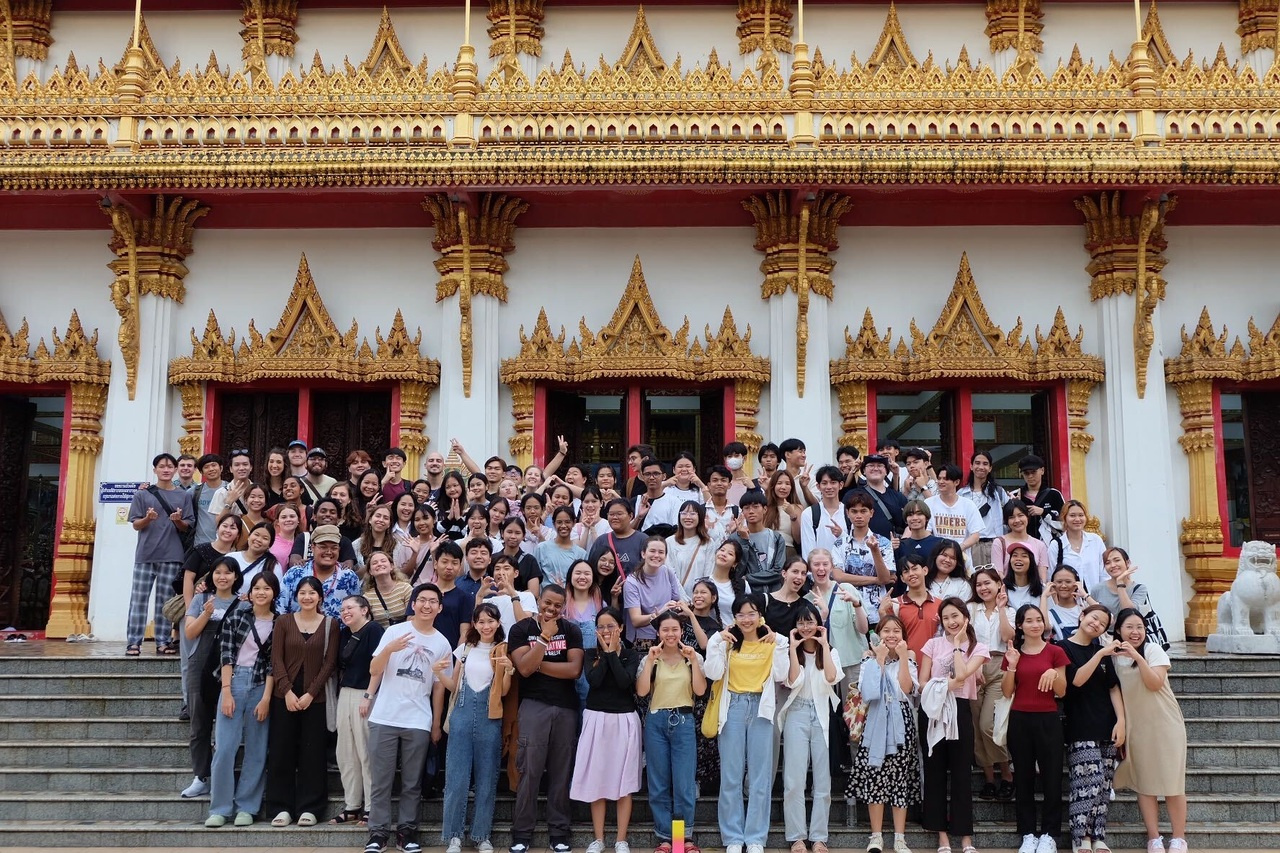Leadership in Action Reflections: Humility from the Lab to Thailand

Even before I was accepted as a Laidlaw Scholar, I had a strong desire to impact the world with my life. I burned to use my opportunities to sacrifice for the sake of underserved groups around the globe. I felt that way completing extractions in my lab last summer as I dreamt about life on Mars and the implications that would have for those on Earth. I felt similarly as I signed up to return to serve in Thailand for the second summer in a row—this time, with an expanded role due to my Leadership in Action Project. Both times, I didn’t understand exactly how to inch toward my grand visions. However, as I applied the skills I had learned over the past year, I learned the valuable lesson of heart-level humility in leading others.
This summer, I especially learned how to delight in the mundanities of leadership. I learned a similar lesson last summer in my lab, as I worked and enjoyed the ordinary day-to-day work of basic research. But in Thailand, that lesson cemented itself more as I interacted with several different groups of people. There were team members from the US, native Thai Staff, local underserved Thai students, and then other groups of children and adults. This was challenging because I tend to struggle with ordinary, everyday work due to getting too caught up in thinking abstractly or about the long-term vision. One area specifically that I had a harder time with was administration and logistics, as my lack of organization and discipline in that area bled through.
However, I found the solution to this problem through humility. If I viewed my ordinary, everyday responsibilities as responsibilities to others—for our team’s welfare and success—it was much easier to complete them. In this way, I had to prioritize the group through self-forgetfulness. By setting the example, I watched as those I led also humbled themselves before each other and committed to service. As I began thinking outwardly about my role, I found a stronger desire to delight in the sometimes monotonous work of service and administration.
As such, I learned much about leading well with vision in Thailand. I found that my vision should be subjected to and include the people I’m leading. As we taught students at Khon Kaen University or met children in Mahasarakam, I realized that my long-term vision stands on the shoulders of others’ ordinary actions. And for healthy leadership, that vision should flow out of a genuine heart of service to others. Sometimes I would lead with a vision that worked for me or a vision that was fixated on optimizing success. I quickly learned from my mistakes. An authentic leader must, with the good of his team in mind, shepherd the group together toward the greater vision. I learned how critical this lesson was as I evaluated my strengths as a leader.
Humility in leadership also proved to be messy as I stepped into the complexities of personal relationships. I desired to build trust with my team through my example and actions. It takes intentional, planned care to foster clarity, manage expectations, and work toward someone’s welfare. And it took true humility to do those things, especially when some conversations were more confrontational but necessary for the sake of unity. Leaving Thailand, I’m convinced that humble leadership in person-to-person relationships wins others’ hearts and covers one others’ faults, as others respond with similar humility and trust. I had never realized how key interpersonal humility like that was for a leader.
This kind of humility has given me principles to operate by in day-to-day actions as I pursue my grander goals. I am convinced that this is how genuine leaders change the world. Through the mundanities of service, the wonders of vision, and the confusing nature of relationships, leaders can shine through their character and self-forgetfulness. From a lab bench all the way to Thailand, it takes ordinary, humble leadership and action alongside others to produce longer-term, extraordinary results.
That’s a lesson I’ll cling to for the rest of my life.

Please sign in
If you are a registered user on Laidlaw Scholars Network, please sign in